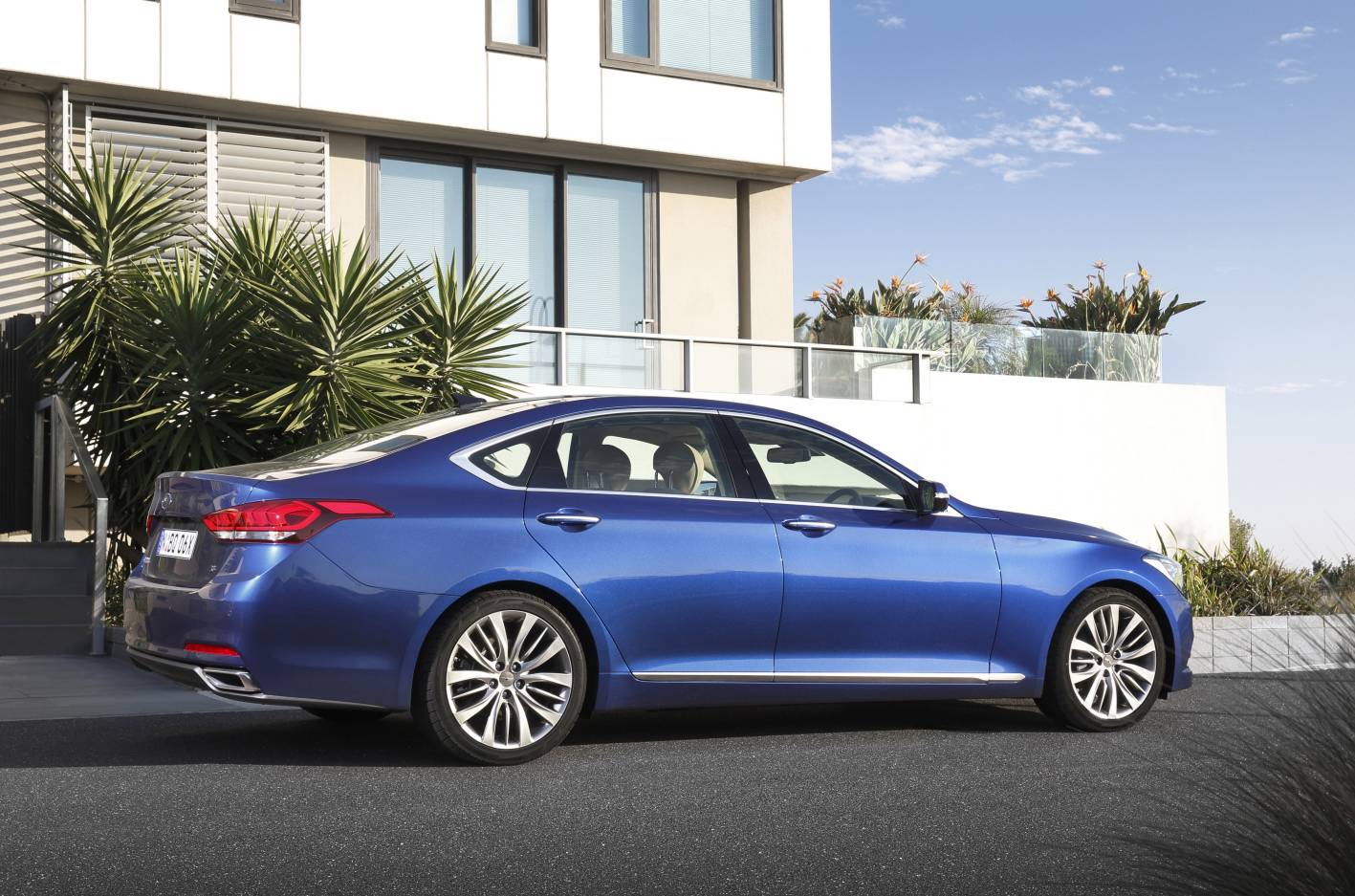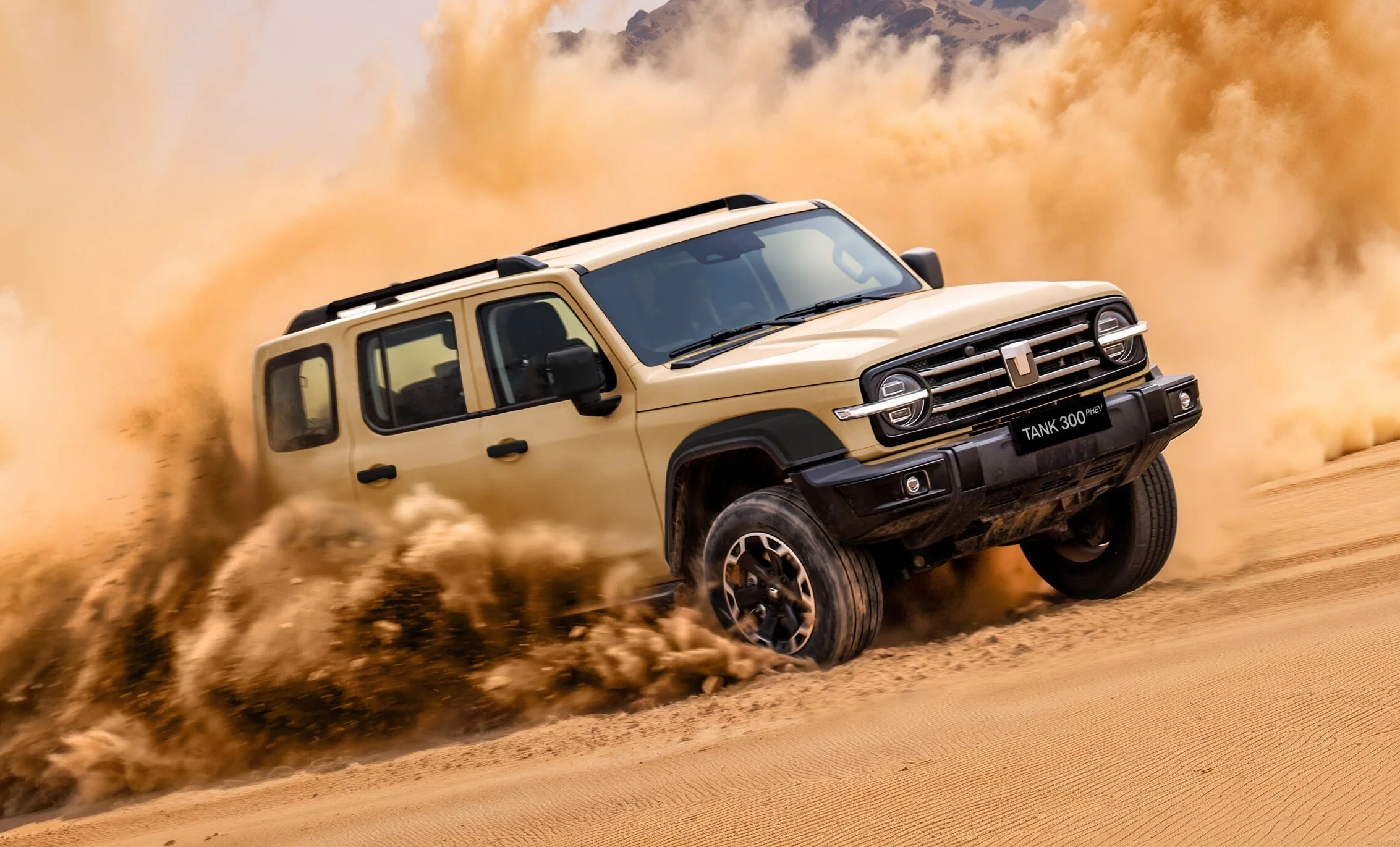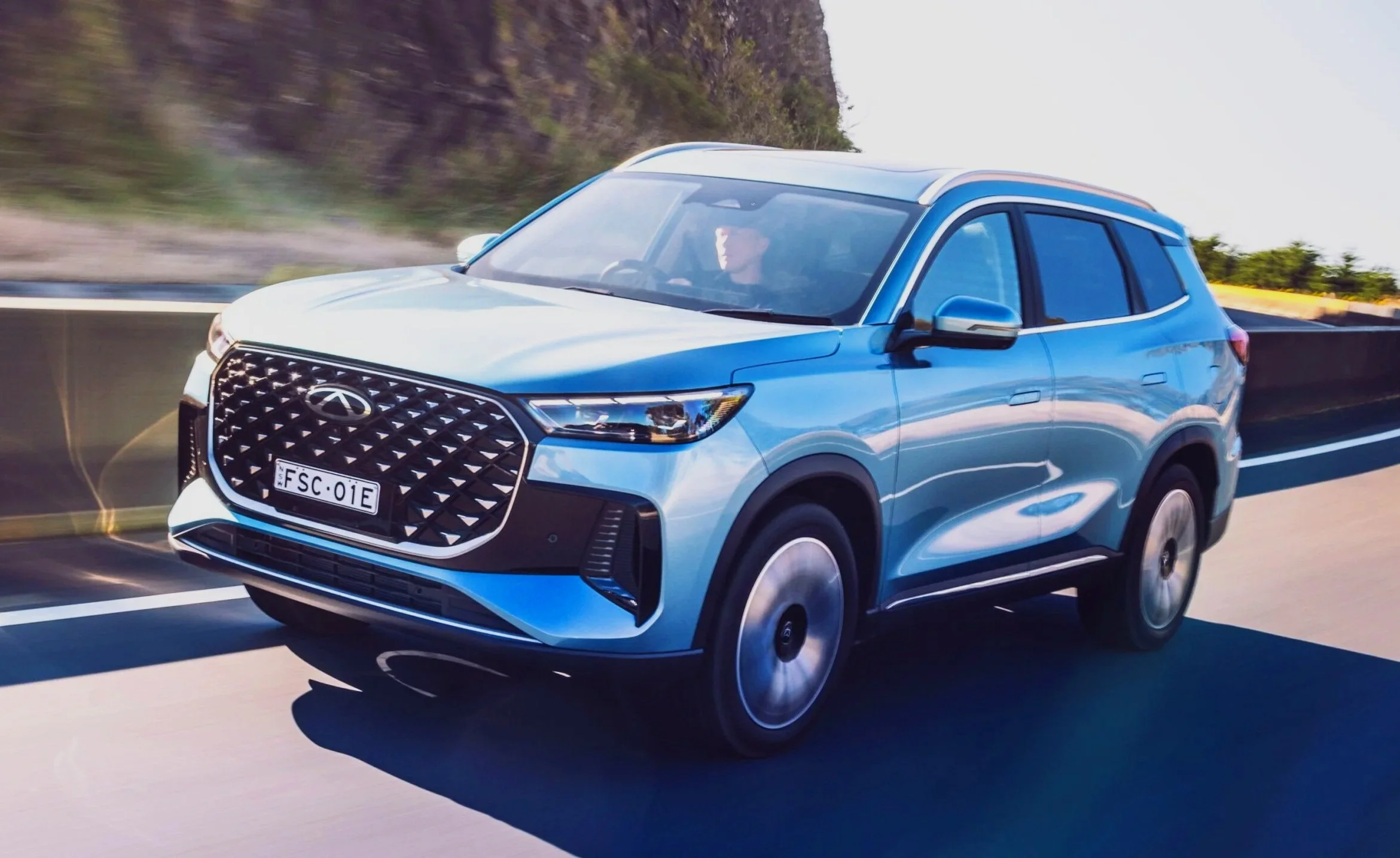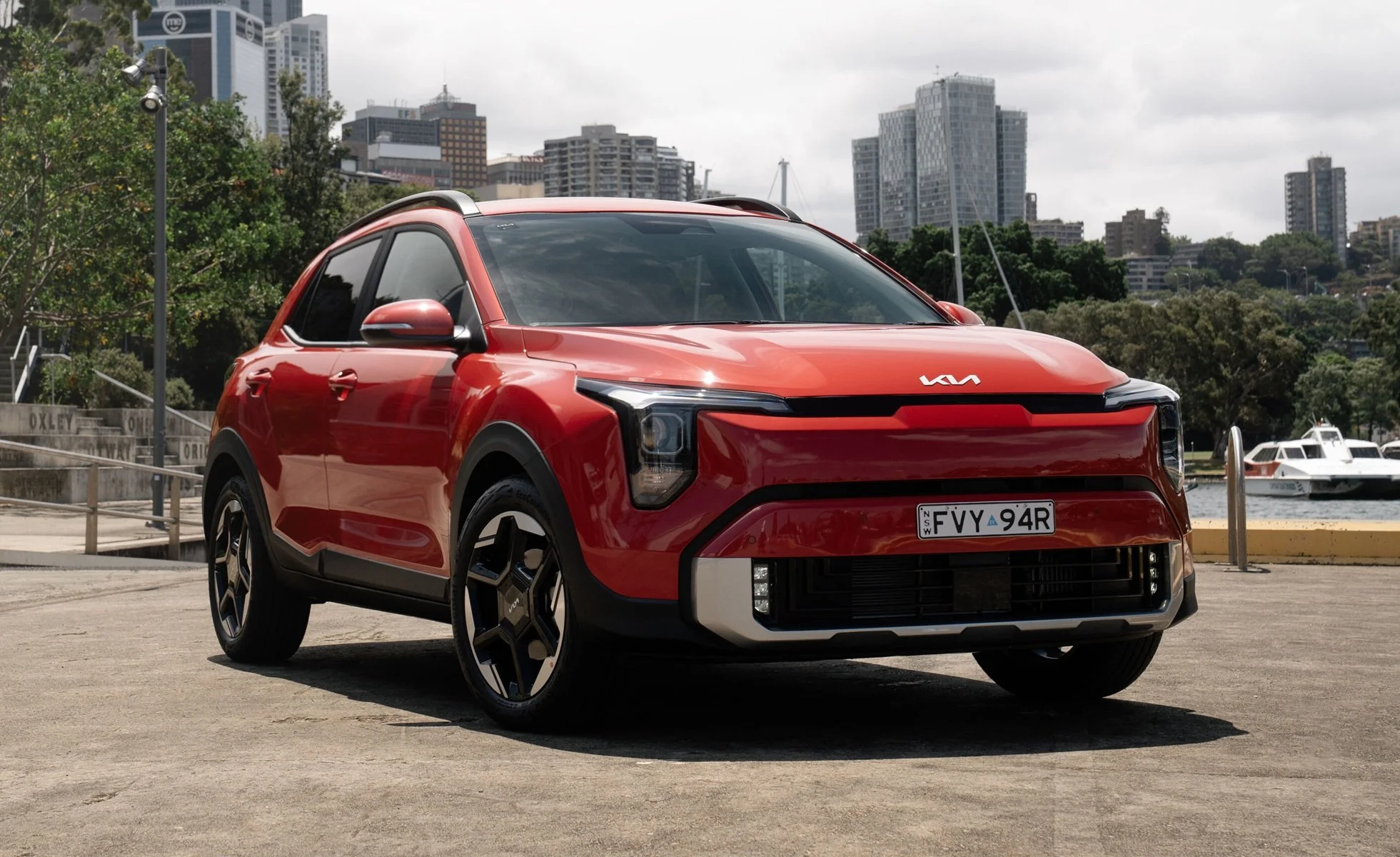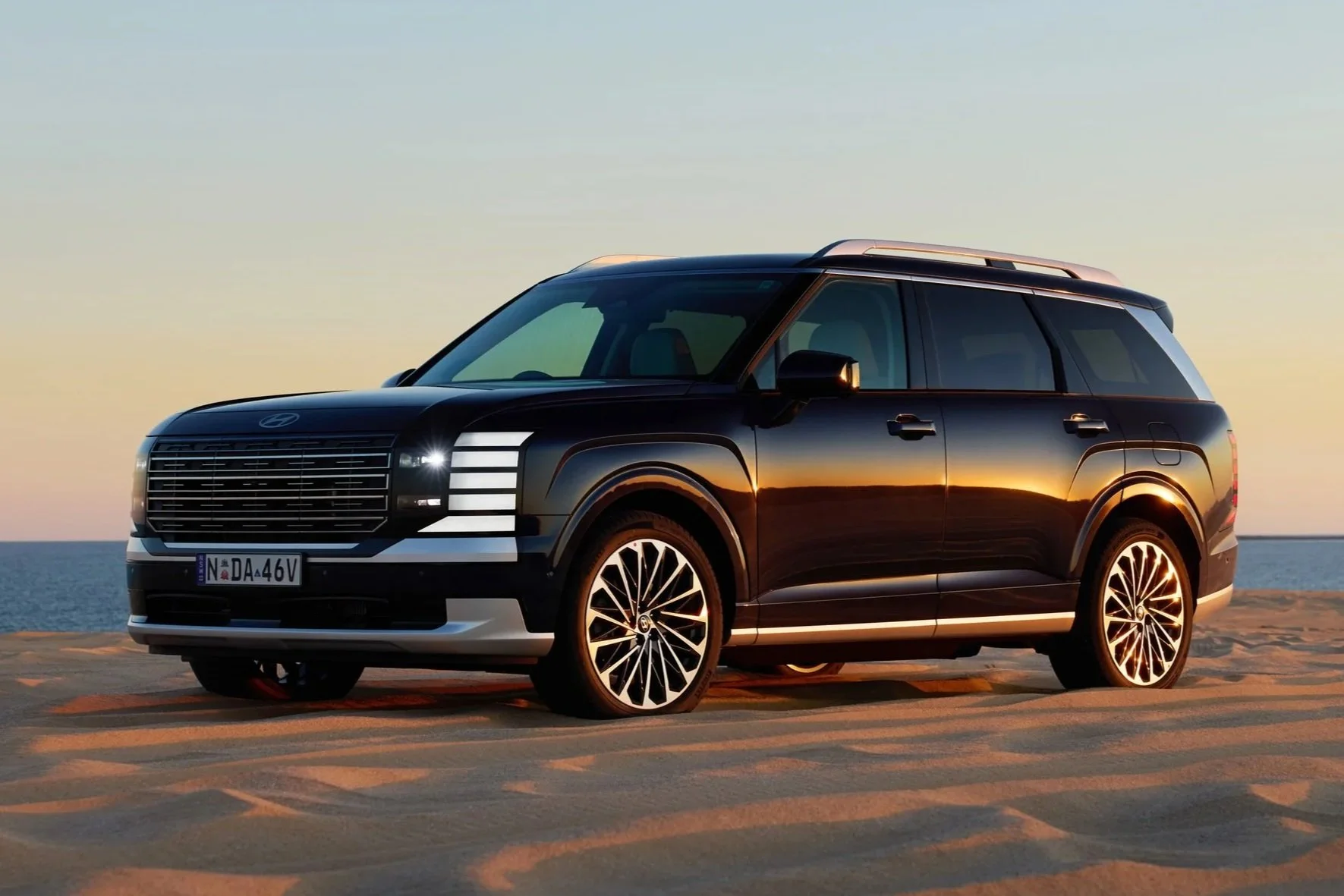Hyundai Genesis review & buyer's guide
If you were a mid-level enforcer for the South Korean Mafia, the Hyundai Genesis is company car you could really aspire to.
Large cars down under
How does Genesis fit in, in Australia? Because it certainly seems like a fish out of water - I mean, if you’ve got $60-$80k, do you even buy a car from Hyundai? People don’t even buy big cars any more, right?
I’ve seen dozens of reviewers compare Genesis with the Mercedes-Benz E-Class, which I guess is an interesting intellectual exercise - but it tells you a lot about reviewers, and how they never buy their own cars.
Nobody in their right mind shops an E-Class against a Genesis. Doesn't happen.
Large car sales in Australia
Genesis -Vs- nearly departed Caprice
Here in Australia there are some small number of car buyers - hire car drivers, and people who just really like the big, fat, long-wheelbase, rear-drive limo thing. I get that. And those people currently buy the Holden Caprice. There will be about 1000 Caprice customers a year - so, it’s a niche thing.
But here’s the problem - if you operate a factory and it only makes 1000 Caprices a year, this is a Dr Kevorkian production scenario. It just is. The fat lady is on in five - the factory is closing. Done deal. Twelve months time: No more locally made Holdens.
This is absolutely and fundamentally a betrayal of the Australian taxpayer by Holden, A.K.A. General Motors. If there is a spectrum of ethical carmaker conduct, this closure is off the chart - and not in a good way.
Here’s Genesis, currently selling about 500 units a year. No ‘economy of scale’ equation imposed by a factory.
The imminent demise of Caprice is an opportunity for Hyundai to triple Genesis sales in Australia - because those Caprice buyers will still want a sub-$100k big, fat rear-drive limo, and Genesis is suddenly the only game in town.
(Hypothetically, you could buy a Chrysler 300 ... but importer Fiat Chrysler Automobiles has a reputation for lousy customer support and I rate its brands a firm "don't buy")
The $60-$80,000 question is: How well will Genesis replace Caprice in your driveway?
Holden Caprice
6.2-litre V8 petrol
pushrod, 2 valves/cylinder
91 RON minimum
304 kW @ 6000 rpm
570 Nm @ 4400 rpm
Pwr/wt: 169 W/kg
6-speed automatic
Rear-wheel drive
Length: 5.160 m
Width: 1.898 m
Height: 1.470 m
heelbase: 3.009 m
Tare mass: 1804 kg
Warranty: 3 yr / 100,000 km
Servicing: 9 mth / 15,000 km
(no free servicing)
Manufactured: Australia
Hyundai Genesis
3.8-litre V6 petrol
quad-cam, 4 valves/cylinder
91 RON minimum
232 kW @ 6000 rpm
397 Nm @ 5000 rpm
Pwr/wt: 119 W/kg
8-speed automatic
Rear-wheel drive
Length: 4.990 m
Width: 1.890 m
Height: 1.480 m
Wheelbase: 3.010 m
Kerb wt: 1945 kg
Warranty: 5 yr / unlimited
Servicing: 12 mth / 15,000 km
(5yrs free servicing)
Manufactured: South Korea
Performance
I guess the elephant in the room there is the engine. Genesis has a refined powertrain but it’s not the Caprice’s 6.2-litre V8. What it is, however, is 60 per cent more potent than a base-model Benz E200, which costs $30,000 more.
Genesis will haul your arse to 100 kays an hour in 6.5 seconds - and that’s not exactly shabby.
Genesis has a higher power-to-weight ratio than most cars.
Performance is beyond adequate, and refinement is excellent. Suspension tune is developed locally for Australia - and it’s really good on our globally acknowledged totally shit roads. In the week I had it, I drove Genesis about 500 kays in one day from Sydney to Bathurst and back on all kinds of backroads and highways. Genesis just ate that up. It’s got the whole ‘grace, space and pace’ thing happening - as long as you don’t push it harder than about 8.5 out of 10. And if you do, it just feels like a big heavy car that you’re abusing. I only abused it a bit - it’s not that much fun. And some cars are very fun to abuse. This isn’t one of them.
So I’m driving on all these backroads, and over the Bells Line of Road to Lithgow - and I’m wondering about the 6.2-litre V8 ‘experience’ in Caprice. As in: How much is useful, and how much is just bragging rights? Where would you actually use the performance potential of the V8?
The authorities in Australia have so fucked our roads - you’ve got roads that would be beautifully engaging and flowing at 100, 110 (kays an hour) and you are limited to 80 - and they prosecute the limit like religious friggin’ zealots. It’s like driving on fucking Valium. Not that I’ve tried that.
In the context of driving in contemporary, over-regulated Australia, Genesis is beyond adequate. And the radar-based adaptive cruise control is bang-on accurate. It’s a great way to preserve your licence. It does a fantastic job reigning in your speed even on steep downhill sections. If I was a cop, I’d hate that. But if you drive long distances on highways, that’s a real win.
Suspension
What I have to tell you is that in a car like this, getting the suspension tune balance right is really difficult. Because you’ve got two conflicting imperatives. What you need to achieve is driver engagement - so the feedback has to be there - but you can’t put a dent in NVH and refinement, because that luxury feel is also critical.
There’s a wizard named David Potter who does these unique suspension setups for Hyundai in Australia, and whatever they pay him, he’s worth more money. Ditto his apprentice, Andrew Tuitahi - David Potter’s Harry Potter, in a manner of speaking. They both did a great job. Respect.
Genesis returned just over 11 litres per 100km to Bathurst and back - and that’s pretty impressive fuel consumption. I didn’t need a chiropractor at the end of the day - also good. Very comfortable. It rides on the same long wheelbase as the Holden Caprice, too: just over three metres. In automotive terms, that's huge.
Luxury on a budget?
What you also get is extreme refinement, and affordable luxury. If you buy a Genesis, and if you use Hyundai’s finance, there’s a buy-back guarantee that hedges against depreciation - which might otherwise constitute this car’s biggest critical drawback. You also get servicing thrown in for the first five years or 75,000 kilometres.
Equipment grades
Genesis
$61,500 + on-road costs
Standard items:
Nine airbags
Autonomous Emergency Braking (AEB)
Adaptive cruise control
Auto high beam
Lane departure warning
Pre-crash safety system
ABS, EBD and brake assist
Electronic stability control (ESC)
Hill-start assist control
Emergency stop signal
Tyre-pressure monitoring system
HID headlights
LED daytime running lamps
Rear-view camera
Parking assist system
Seatbelt reminder (all seats)
Leather interior
9.2-inch satellite navigation system
17-speaker audio system
Proximity key with push-button start
Dual-zone climate control with auto defog
12-way power front seats
Heated front seats
Electronic park brake
18-inch alloy wheels
245/45 R18 Hankook tyres
Hands-free power-open boot
Rain-sensing wipers
Rear power blind
4.2-inch LCD Supervision cluster
Electro-chromatic mirror
Electric folding side mirrors
Puddle lights (Genesis logo illumination) in side mirrors with courtesy lights in door handles
One-touch window up and down function on all windows incorporating anti-pinching safety feature
Interior mood lights
One-touch turn signal
Steering wheel-mounted paddle shifters
Solar control glass
Genesis Sensory Pack
$71,000 + on-road costs
Adds standard Genesis items plus:
Blind spot detection
Rear cross traffic alert
Lane change assist
Head-up display
Around-view monitor
Premium leather appointed interior
Power bolster and extendable base (driver’s seat)
Driver’s seat memory system
Power tilt & telescopic steering
Electrochromatic auto-dipping exterior mirrors
CO2 sensor
LED front fog lights
Genesis Ultimate Pack
$82,000 + on-road costs
Adds Sensory Pack items plus:
Panoramic glass roof
Power door latches (automatic soft-closing function)
Ventilated front seats
Heated rear seats
Noise reducing acoustic glass
Power boot lid
7-inch LCD supervision cluster
19-inch alloy wheels
245/40 R19 Dunlop tyres (front)
275/35 R19 Dunlop tyres (rear)
Illuminated front scuff plates (with Genesis logo)
Rear door side curtains
Stay updated on specs at Hyundai's official Genesis specifications page >>
Safety
What I will tell you is that Genesis is also supremely safe, and I don’t use that ‘S’-word a lot. Seems justified, though: Because Genesis scored the highest safety score in ANCAP history against the independent testing protocols so, not all that much scope for improvement there.
The official score (from the 2014 assessment) was 36.88 out of a possible 37 points. That's 99.7%. Find out more safety and crashworthiness detail at the official ANCAP Genesis page >> or download ANCAP's detailed Genesis technical report >>
Styling
I don’t normally comment on styling - because you’ve got eyes and so I don’t need to tell you what it looks like. But it strikes me as being kinda understated and Teutonic. Inside and out.
You could cover up the badges and fool a lot of people that the country of origin was a fair bit further north and west. (I guess there's a reason Hyundai-Kia headhunted Germany's best automotive stylist to head up the development of future product...)
Can Genesis step up?
Genesis is always going to be a niche product. But that niche is about to get a lot bigger over the next 12 months because of the imminent death of the Holden factory. The broader context is that the Australia I grew up in - in which you were either a Holden Kid or a Ford kid - that Australia is already dead.
Ford and Holden have already stepped off the podium, and the biggest challenge they face is poor product quality and growing cultural irrelevance. They are no longer icon brands. Mazda and Hyundai have already replaced Ford and Holden on the podium in the minds of a great many Australian new car buyers - this is what the sales data demonstrates unequivocally.
Ford V Holden V Mazda V Hyundai sales, 2000-present day
If you, or your parents - or their parents - immigrated here from further afield, that Ford V Holden cultural clash that transfixed multi-generational Australians has never been that significant to you anyway.
Conclusion
You have look at this like a game of chess: The pieces and where they are disposed on the board, strategically.
(And, science geek factoid: there are more potential moves on a chessboard than there are elementary particles in the universe. True. There are.)
The shift in our cultural relationship to cars in general, the objective use of our resources and the jobs that creates, the luxury, the big engine, the price, the rear drive - Genesis is sufficiently big and fat - all of a sudden Genesis is looking like a natural successor, albeit one that’s swimming against the jingoistic tide if you look at history with the rose-coloured glasses on.






